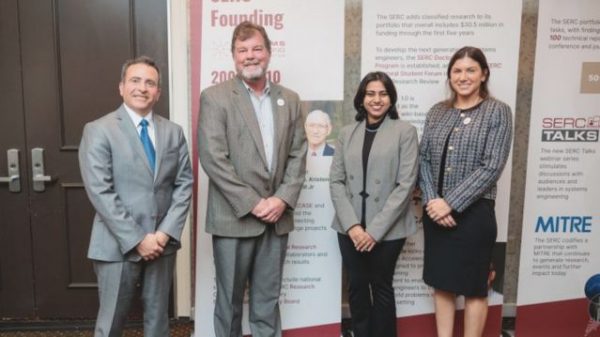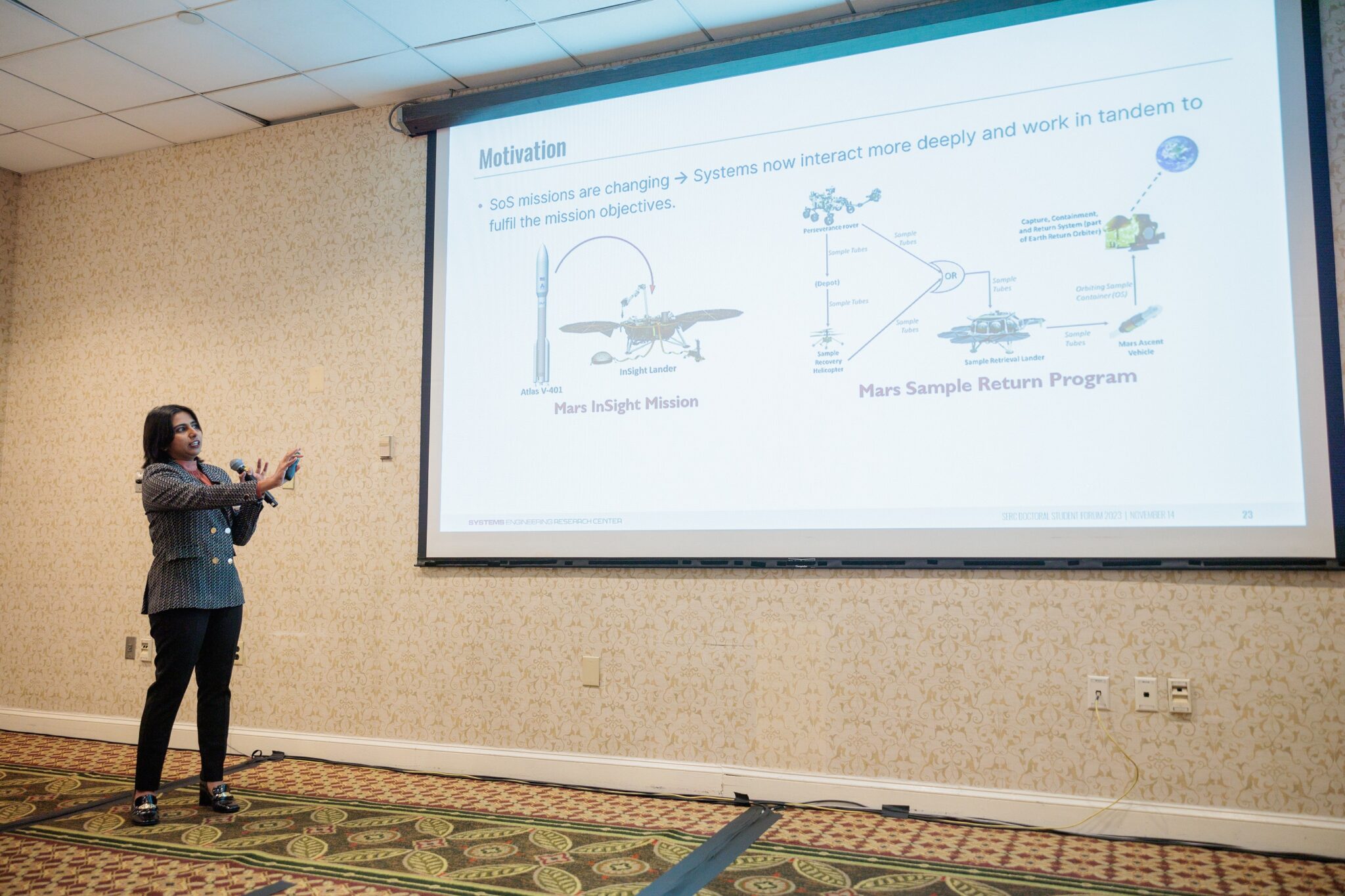Purdue Student Earns Boehm Award at SERC Doctoral Student Forum

During the 2023 SERC Doctoral Student Forum (SDSF), Ms. Sonali Sinha Roy of Purdue University presented on risk assessment frameworks and earned the Dr. Barry Boehm Award for Doctoral Student Research Excellence.
Roy is a doctoral candidate at Purdue’s School of Aeronautics and Astronautics and a graduate research assistant at the university’s Center for Integrated Systems in Aerospace. She earned a bachelor’s degree in aerospace engineering at SRM University in Chennai, India. Her research interests include space mission engineering, system-of-systems engineering, system safety and risk assessment, mission assurance, and model-based systems engineering.
Roy titled her presentation as “A State-Based Probabilistic Risk Assessment Framework for System-of-Systems Operations.” In the abstract, she stated that systems-of-systems (SoS) can be complex due to the number of constituents involved. “The individual failure modes of the constituent systems coupled with the interdependencies among them can result in a vast variety of risks that may affect the operations of the SoS in unpredictable ways,” Roy wrote.
Roy argued that traditional risk assessment techniques for SoS applications are often inadequate because they do not consider the interactions between systems or the progressive consequences of total or partial disruptions. She proposes a state-based framework for probabilistic risk assessment. “By defining SoS-level performance metrics and observing their variation with system-level parameters, the impact of each system’s operations and failure modes on the larger SoS can be assessed,” Roy wrote. “Overall, this framework can provide deeper and richer insights by enabling sensitivity analysis, risk quantification/ranking, and comparison of various operational concepts, thereby generating a holistic risk profile of the SoS operations.”
Roy was happy to have earned recognition during the SDSF. “It was a privilege to be able to present my work to so many knowledgeable peers and distinguished experts in the field of systems engineering,” she said. “All the student presentations were very informative and innovative, so I am honored that my work was recognized through the Boehm Award. I am grateful for the support I received from my advisor and colleagues and touched by the appreciation shown by my co-presenters at SDSF.”
Roy’s doctoral advisor, SERC Chief Scientist Dan DeLaurentis, was pleased at her success. “Sonali has a degree of intensity and passion for understanding a problem deeply that is rare among the students I have worked with,” DeLaurentis said. “Combined with her creativity, she has a powerful combination of capabilities and I foresee great impact she will make on the community in the future.”

Follow SERC on LinkedIn for regular updates on systems engineering research.
